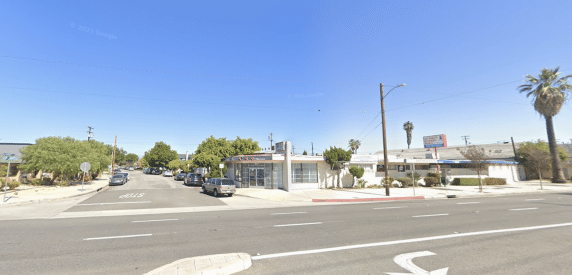
When accused of an offense, being detained can be a devastating and unfamiliar experience. Luckily, since you are innocent until proven guilty, the court might release you as you await your trial. Nevertheless, the judge might require that you make a promise to make court appearances when required. The security is known as bail bonds and can be posted as either property or cash through a licensed Paramount bail bonds agency. At Cali Bail Bonds, we understand how a criminal charge can affect your life. Therefore, we can help you post bail at a reasonable cost so you can return to everyday life as soon as possible.
Although most people have previously heard of the phrase "out on bail," they cannot explain how it works. Additionally, many use the legal terms bonds and bail interchangeably to refer to the same thing, but the truth is that they are different. To help you understand how bail and bail bonds work, here is a section on the same.
When an individual is charged with a crime and detained, they might have the option of securing their release by paying an amount of money that the court determines based on the facts of the case. The amount is called bail. It serves as an agreement between you and the court that you will appear at court.
If you can't afford to pay your bail amount, you can seek bonds from a bondsman. Instead of posting the entire amount to the court directly, you can agree with the agency, where the firm posts the amount. In return, you should pay the bonding company a percentage of your bail amount (usually ten percent). Please note that the premium is non-refundable.
After posting bail, the agency becomes accountable for your bail amount, and the funds will be lost if you skip bail.
If you used collateral for your bond, the provider could dispose of it to recover the court's forfeited money. If there wasn't collateral, the agency might hire bounty hunters to find you. Bounty hunters are paid a portion of the bond amount as long as the accused person is arrested. The court will give the provider a time limit to locate and return you to detention.
However, the judge could vacate the forfeiture order and exonerate the bond if you show up in court within six months of your bail forfeiture date. You should also have a reasonable excuse like:
Collateral could be anything valuable. It serves as a guarantee or security that you will attend your court hearing. If you fail to appear in court, your Paramount bail bonds agent will pay your entire bail amount to the court. That is why your collateral must be adequate to compensate your bonding company.
You can use any of the below as your collateral:
You'll be arrested, booked, and processed before appearing before the judge during your arraignment hearing when you are accused of violating a law. The arraignment hearing is used to determine whether you qualify for bail or not. There are numerous factors that the judge uses to decide on the entire bail amount.
One of these factors is the severity and nature of the alleged offense. If the offense involved death or violence against somebody else, the court might not grant bail. If granted, there is a likelihood that the amount set will be high. The rationale behind the vast bail amount is ensuring the defendant attends their court hearings. If the offense is minor, without the involvement of violence, and the court feels that you do not pose threats to yourself or others, your bail amount will be reasonable.
Another factor the court considers is your previous criminal records. If you are a repeat offender, your bail amount will be higher.
Finally, the judge will consider whether you are a flight risk (possibility of skipping bail). If bail is granted and you jump bail, your entire bail amount will be forfeited.
A person with community ties or a steady job or business is less likely to flee. In this case, the court will set a reasonable bail.
If you have any questions on how bail is determined, don't hesitate to contact your Paramount bail bonds agent to learn more.
The bail amount set by the court could mean the difference between freedom as you await trial and imprisonment. Consequently, reducing your bail amount to the least amount possible is vital. Here are ways to reduce your bail amount:
An arraignment is the initial court hearing where the court advises you of your criminal charges. During the hearing, your lawyer can request the court to modify the amount. In acting so, they will present proof and argument on relevant facts like your community connections, previous criminal record, whether you pose a threat to your community, and the severity of the offense against you.
The law bans excessive bails. There aren't hard-and-fast rules for what makes the bail amount unreasonable. That means the most effective way to get a bail reduction on a constitutional foundation is retaining a lawyer who can develop convincing arguments for the court's consideration. The arguments can be based on constitutional or statutory factors.
PC 1289 allows the court to reduce your bail amount if good cause is established.
The phrase "good cause" means changes in circumstances associated with the proceedings or the accused person. For instance, if your attorney succeeds in dismissing the charges, you can work to reduce your bail. Please note, it doesn't mean that the judge made a legal mistake or did not analyze your case well.
A first-time offender who is not deemed a flight risk might be released on their own recognizance without posting bail. All they've to do is sign paperwork promising to appear in all their court proceedings.
Sometimes the judge might hold a formal own recognizance release hearing if the crime is outlined in PC 1270.1 or PC 1319.5. The hearing is scheduled and conducted the same way as the bail hearing. The prosecution will be permitted to present proof and contend against your release.
PC 1270.1 crimes include:
However, if an individual prosecuted with a violent felony might not be released on OR if there is persuading proof that:
PC 1319.5 requires a hearing for the own recognizance if:
A co-signer can be a loved one, employer, or any person that the accused person trusts to be their co-signer. It's up to the bonding company to decide whether that person could co-sign the bond. Generally, bail bond agents prefer a responsible person who knows the co-signer's responsibilities and requirements and has a good credit score. The bail bonding company will also consider the Indemnitor's annual income and job history.
You cannot be compelled to co-sign a bond. If you don't want the liability and obligations of co-signing, you might refuse. That might mean that the suspect has to remain in detention, but you do not have to put your asset or livelihood at stake if you don't want to. Moreover, you should not sign a contract without discussing your responsibilities with the Paramount bail bonds agent and understanding your situation.
You also have the entitlement to request specific rules and conditions as part of the agreement. You can ask the accused person to enter an anger management program, group therapy, counseling, or substance abuse class that might be in the accused person's best interest, especially if the alleged crime is domestic violence or driving under the influence.
If you think the accused person will skip bail or flee the jurisdiction, you should speak with the court and the bondsman. They can permit you to terminate your contract and return the suspect to police custody.
When you require bail, you can make mistakes and wrong decisions that might result in detrimental consequences. To prevent this from happening, here are common bail bond mistakes to avoid.
Many people do not research bail bonds until they require one. At that point, they feel that time is of the essence and want their loved one released from detention as soon as possible.
When you contact the bail bond agent, you should be prepared with the right questions. Money is the first consideration. Find out how much of a premium you have to pay to obtain the bail bond services. Most companies required a premium of ten percent of the entire bail amount.
Time is another essential factor. Ask about how long the release process will take. Your bondsman should be able to communicate with the relevant jurisdiction in time for the proper timeline.
Being granted bail comes with terms and conditions that go beyond financial accountability. Some of these conditions include:
Failing to understand and adhere to the conditions can result in bail revocation. Therefore, be sure you read, understand, and follow them.
It would be best if you did not lie to either your bondsman or the court. The queries the firm and the court ask assist determine whether you're trustworthy and can meet the obligations. Incorrect details will only see the bail request denied. While sometimes, you can get away with providing inaccurate information, it increases the possibility of your bond revocation.
Ensure you double-check your paperwork before submitting it. Also, if you don't have a permanent address, be frank about it.
If you're detained at night or over the weekend, you're likely to decide to wait until the next business day to reach the bail bond company. Since there is a lot of paperwork to complete and a lengthy process, this will only result in unnecessary time in jail. Most seasoned Paramount bail bonds agencies work 24/7, and you should call one immediately.
The last thing you would want is to be detained again. Once you are released, you should be of good character and maintain a low profile. Going to jail for the second time while awaiting trial will increase your final legal fees and court fees. The bondsman might also withdraw their services if they believe that they cannot trust you.
Essentially, the bail bond acts as a promise that you will be available and attend your court proceedings. Failing to make the scheduled appearance can lead to bond revocation. If you cannot show up in court due to an emergency, notify the bondsman. Do not jump bail, hoping to work out the issue later.
Additionally, if you fail to appear in court, the court will issue a bench warrant for your arrest. The penalties for FTA depend on whether you were prosecuted with a felony or a misdemeanor.
If your original charge was for a misdemeanor, failing to show up in court is a misdemeanor. It attracts penalties like a year in jail and maximum fines of one thousand dollars.
And if your original charge was a felony, you will face a felony. It is punishable by up to five thousand dollars in fines and three years in state prison.
One of the conditions of release is keeping or finding employment. Quitting your job reduces your community ties, a factor that plays a significant role in determining whether you will be granted bail or not. The court might assume that you are planning to flee the jurisdiction.
Resigning from your job also means you will have less money to support your family and put towards the defense.
When you seek a bondsman's services, you might require a co-signer. It is the responsibility of your co-signer to ensure you comply with your bail conditions and make court appearances. While having a person checking on you from time to time can be irritating, you shouldn't take advantage of your co-signer or ignore them.
Failing to cooperate can result in the co-signer contacting your bonding company, requesting to withdraw as the co-signer, and having you arrested.
Are you or your loved one detained, and you cannot afford the entire bail amount? Do not worry. When it seems like nothing is working for your good, Cali Bail Bonds can secure the release seamlessly so you can return to work and what matters to you most, your family. It also prevents you from making any self-incriminating statements. Call us today at 562-376-5476 to learn how we can help you and answer your questions.
"*" indicates required fields






